 By Lyn Turknett
By Lyn Turknett
Co-founder & Co-chair, Turknett Leadership Group
The good news right now is that we are talking about mental health in the workplace. The pandemic has helped us all confront our humanity and the existential anxiety of life. We’ve all struggled with new ways of working, childcare with kids out of school, barking dogs on Zoom, and wondering whether life will ever feel normal again. We are talking about mental health in an open way, and the honesty of Olympic athletes like Simone Biles and Michael Phelps has helped normalize the conversation.
From Fast Company: [Simone Biles’ story] also resonates so deeply because it comes at an important time—after 15+ months of living amid the stress of a pandemic—when more and more Americans are coming into contact with the struggles of mental health, especially in the workplace.
While compassion for individual struggles is essential, as is recognition of the stress we are all under, creating workplaces that really support mental and emotional health requires bigger thinking. Here are four ways I think we can create workplaces that help.First, we need better leaders.
We know that people don’t leave companies, they leave bosses. We’ve seen stats indicating that a lot of employees are searching for other jobs. The most salient stressor for any employee is the direct supervisor. Employees report significantly higher levels of stress but say that they are getting insufficient support from employers. We need leaders who are self-aware and emotionally supportive – leaders of character who are able to balance what we call Responsibility (characteristics that help drive a focus on results) with Respect (characteristics that help create cultures of empathy and compassion).We need better cultures.
Workplaces where people can bring their complete selves – where people feel safe and appreciated, where opinions are valued, and where there is a sense of purpose beyond profit – support emotional health. There’s a lot to celebrate and appreciate right now, despite the pandemic. Most organizations we’ve seen have quickly adapted and innovated in ways I would never have believed possible. Those “pandemic stories” need to be collected and shared – we need to all recognize what a testament that response is to human ingenuity and resilience. We also know that a culture that provides psychological safety is not just good for mental health; it’s also good for innovation, productivity, and the bottom line. Charles Duhigg’s NY Times summary of Google’s research is a classic in unpacking this.We need individual support and understanding.
The pandemic has added to everyone’s stress, and when that is paired with other life stressors – death, divorce, job loss in the family – emotional resources get severely strained. A leader I know discovered that one employee had lost five family members to COVID within a few months. Most employers offer employee assistance programs, and we need to be sure that every employee is aware of resources available. Messages from leaders need to be compassionate, and leaders need to be aware and available for conversation and support. I recently heard from a leader that her practice of saying hello each morning, and really noticing how people respond, had helped her recognize that someone on her team needed help. She asked that person to come in for a conversation, and subsequently discovered that the team member was contemplating suicide. She was able to successfully connect her to a crisis counselor.We need to support resilience-building and personal growth.
I credit workplace personal development with making a more significant difference in my mental health than anything else in my life. Bob, my life and business partner, was the head of children’s services at a large mental health system. We were very young, our first child was two, and Bob had just received his doctorate. All was well – until Bob got a new boss. The situation was miserable, and we spent many evenings commiserating with his colleagues. That boss, though, did something that changed our lives – he invited Dr. Maxie Maultsby, a psychiatrist at the University of Kentucky School of Medicine, to come do an in-service training. Dr. Maultsby had developed a form of cognitive-behavior therapy called “Rational Behavior Theory.” He began the training with the famous Epictetus quote – “It’s not the facts and events that upset people, but the view they take of them” – still our favorite. Bob and I had both been exposed to the similar theories of Albert Ellis (Rational Emotive Behavior Theory), but it simply hadn’t connected. We were primed, though, by the stress we were under, and there was a step change in our coping skills. The resilience we built has served us well for over a lifetime. We are surely at a high stress point in society now. Everyone is primed, and it’s a good time to give people as many resources for growth as possible.Investing in people pays off – and it’s the right thing to do.
Josh Bersin recently wrote a piece on employee experience that is spot on. He reports that while most companies focus on technology for driving employee experience, research shows that the truly important drivers are things like trust and transparency, a focus on culture, and a sense of mission.Josh Bersin: We found companies prioritizing investments in people, regardless of the business climate, are much more profitable, have more satisfied customers and more engaged employees, and are perceived as great places to work.
The best time to support people and invest in their development is right now.
